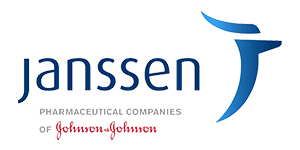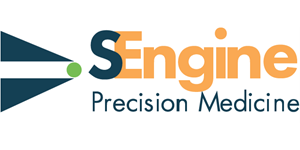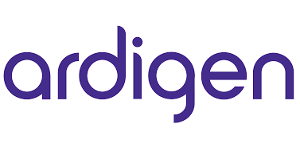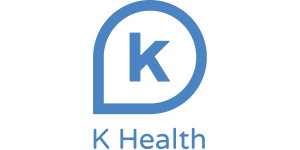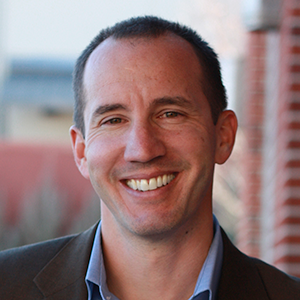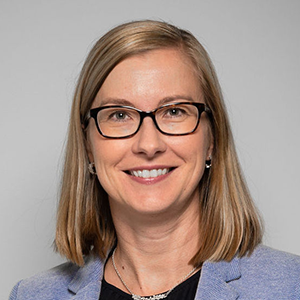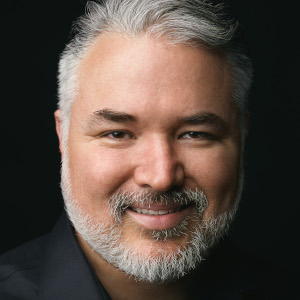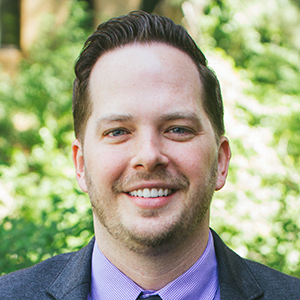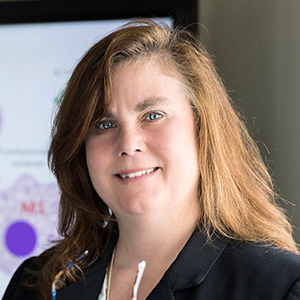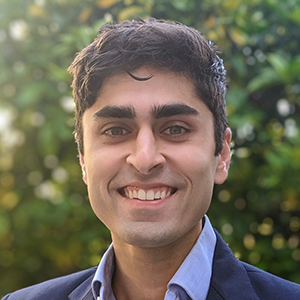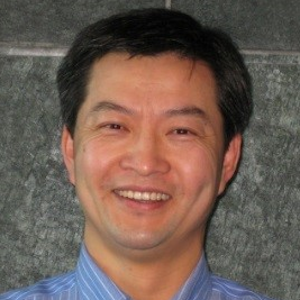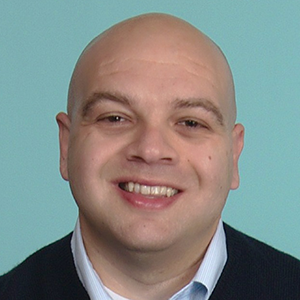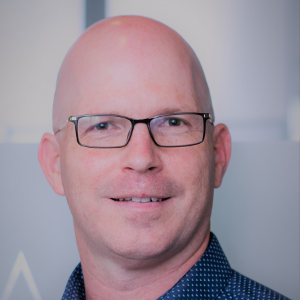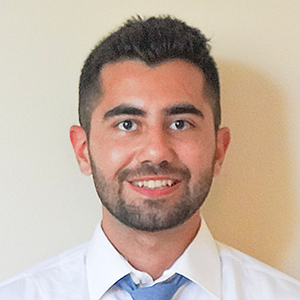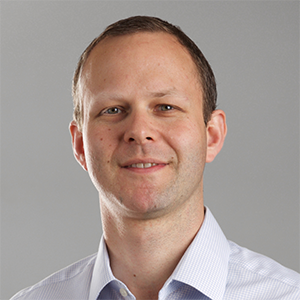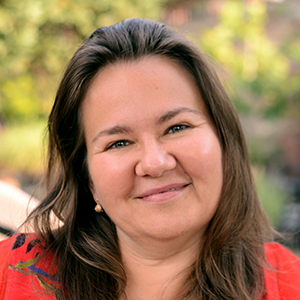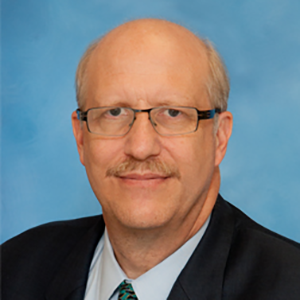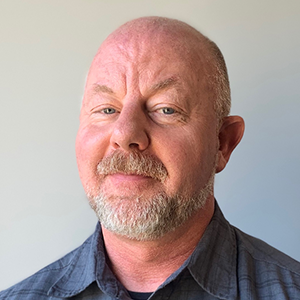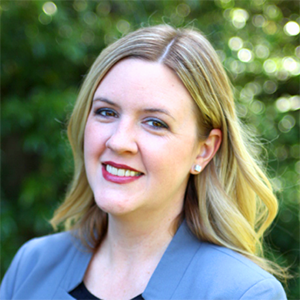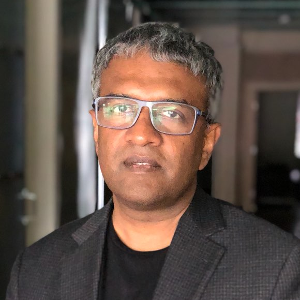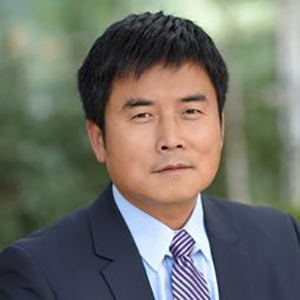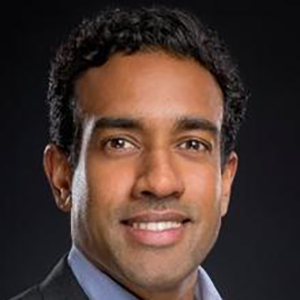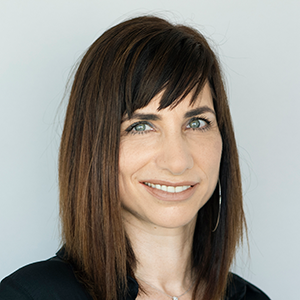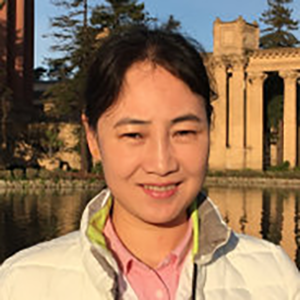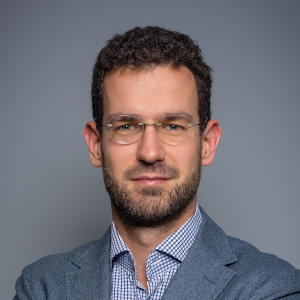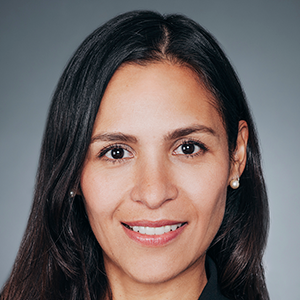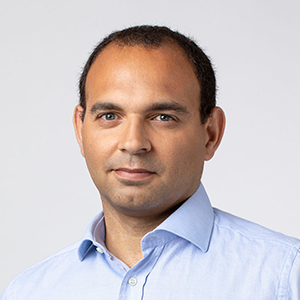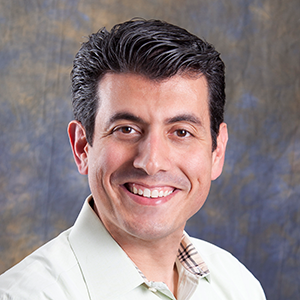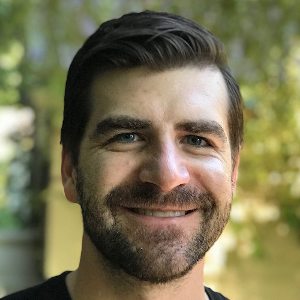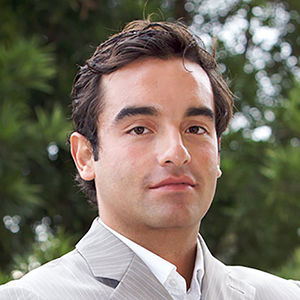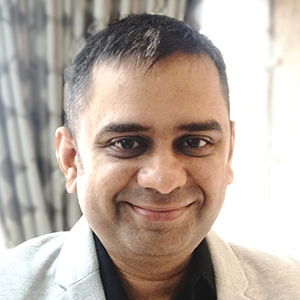The PMWC 2020 AI Company Showcase will provide a 15-minute time slot for selected AI companies to present their latest technologies to an audience of leading investors, potential clients, and partners. We will hear from companies building technologies that expedite the pre-clinical and clinical drug discovery and development process, accelerate patient diagnosis and treatment, or develop scalable systems framework to make AI and deep/machine learning a reality.
Confirmed Presenting Companies:
Speaker Profile
Biography
Dr. Jeremy Orr has more than 20 years of clinical medical practice, population health, and healthcare IT experience. A practicing, board-certified family physician, Dr. Orr was named a “Top 100 Physician” during his time with Kaiser Permanente, and then went on to launch a medical practice that became part of Centura Health. While an Assistant Professor at the University of Colorado, he was selected as Teacher of the Year by residents. Prior to joining EarlySign, Jeremy served as the CMO of Boston-based clinical data analytics firm Humedica (later Optum Analytics) and as CMO of Los Angeles based clinical decision support company Stanson Health.
AI and Data Sciences Showcase:
Medial EarlySign
Medial EarlySign is a leader in machine learning-based healthcare whose solutions help clients with early detection and prevention of high-burden diseases.
Algorithm To Action To Outcomes
In the race to leverage machine learning to improve health outcomes, the math is the easy part. Dr. Orr will recount the story of two powerful clinical prediction models from training to validation to implementation to human impact.
Speaker Profile
Biography
Kaisa Helminen leads Aiforia Technologies, a medical software company in a rapid expansion phase. Their Aiforia® Cloud is transforming clinical pathology and medical research by bringing deep learning AI to assist and augment human experts in image analysis. As a result, patients will have faster, more accurate diagnosis and more personalized care. Kaisa has a strong background in the life science industry, where she has gained close to 20 years of experience in the global business. Previously she has worked for both midsize and large international life science companies, including Thermo Fisher Scientific, Sartorius and Finnzymes, in sales, marketing and business development positions. Kaisa holds a M.Sc. degree in biochemistry from the University of Helsinki.
Speaker Profile
Biography
Jarret Glasscock is a geneticist and computational biologist who leads the team at Cofactor Genomics, a tools and diagnostics company leveraging the power of RNA to diagnose disease. Prior to founding Cofactor Genomics, Jarret was faculty in the Department of Genetics at Washington University and part of The Genome Institute. While at WashU, he was involved in the Human Genome Project, published the first Cancer Genome, led the Institute’s Computational Biology Group, and was part of the Institute’s Technology Development Group tasked with characterizing the first RNA-seq experiments on early instruments such as 454 and Illumina/Solexa(Serial #1). Jarret’s work to leverage signals in RNA to propel Precision Medicine Initiatives has been covered by Genetic Engineering News (GEN), Tech Crunch, and Wired Magazine. He is a member of the Personalized Medicine Coalition, International Society for Computational Biology, and is a Y Combinator Alum.
AI and Data Sciences Showcase:
Cofactor Genomics
Cofactor Genomics uses Predictive Immune Modeling to capture the complexity of disease and build powerful multidimensional biomarkers. Cofactor has spent years pioneering the tools to build an RNA-based database of Health Expression Models, unlocking precision medicine and clinical diagnostics.
Leveraging All Data with Multidimensional RNA Models
Precision medicine in an era of big data requires reducing complexity to meaningful information. The field of Predictive Immune Modeling enables a patient’s immune profile to be used as a powerful diagnostic tool leveraging immune Health Expression Models.
Speaker Profile
Biography
Dr. Kiel oversees Genomenon's scientific direction and product development. In 2014, Mark founded the company and created the Mastermind Genomic Search Engine, which connects doctors with evidence in the literature to help diagnose patients with genetic diseases and cancer. Prior to starting Genomenon, Mark completed his residency in Clinical Pathology in 2014 at the University of Michigan. While at Michigan, he completed a fellowship in Molecular Diagnostics and devised the informatics framework for clinical next-generation sequencing in the Molecular Diagnostics Laboratory. During his doctoral studies, he made ground-breaking contributions to the study of hematopoietic stem cells, for which he was awarded the Weintraub International Graduate Student Award and the ProQuest Distinguished Dissertation Award. While a post-doctoral researcher, he made significant contributions to the field of Hematopathology, including genomic profiling of lymphoid malignancies, for which he was awarded the Benjamin Castleman Award.
AI and Data Science Showcase:
Genomenon
Genomenon, home of the Mastermind Genomic Search Engine, connects patient DNA with the billions of dollars spent on research to help doctors diagnose and cure cancer patients and babies with rare diseases.
Curating The Entire Human Genome At Scale
Understanding the genomic drivers of disease is essential for precision medicine, but manual curation cannot handle the massive amount of information being generated by NGS. Dr. Kiel will demonstrate the technology to curate the entire human genome using a combination of ML and manual approaches.
Speaker Profile
Biography
Dr. Amrie Grammer is a Translational and Computational Immunologist specializing in Autoimmune and Inflammatory Diseases, both human patients and pre-clinical mouse models. Amrie co-founded AMPEL in 2013 to bring precision medicine to patients, especially those with lupus and gout. With bioinformatic tools her team created, she designed and implemented a pipeline to predict “flares” and the “right drug for the right patient at the right time” using predictive analytics, machine learning and AI. Top drugs Amrie identified for repositioning have had positive clinical trials. Her early scientific training was in Chemistry (BS ’89), Pharmacology (MS’91) and Immunology (PhD’96). After her post-doc, Amrie was recruited to the NIH to establish the B Cell Biology Group in the Autoimmunity Branch of NIAMS during the human genome sequencing project. She received multiple NIH awards for her work comparing signaling pathways and genes expressed in patients vs healthy individuals, including the prestigious Director’s Award.
AI & Data Sciences Showcase:
AMPEL BioSolutions
AMPEL BioSolutions is a technology company who has developed a clinical genomic test in the Immunology space to predict flares and the correct drug for a patient based on machine learning of gene expression (target markets: Pharma, Patient/Physician and Payor).
Machine Learning Predicts Lupus Disease Activity "Flares"
Currently used to select patients most likely to be responders in clinical trials, thereby improving outcomes. Future use will be a decision support biomarker test for physicians to monitor disease activity and most appropriate treatments based on a patient’s genes.
Speaker Profile
Biography
Eric Little is Co-founder & CEO of LeapAnlysis. He received his Ph.D. in Philosophy and Cognitive Science in 2002 from the University at Buffalo, State University of New York. He has worked in both academia as a professor in several fields, as well as held multiple management positions in the software development industry. Dr. Little is a recognized expert in semantic technology, Big Data, analytics applications, and formal ontology. Dr. Little has designed and helped to implement semantic technologies and analytics for use in various applied domains including: biomedicine, medical device manufacturing, medical fraud, waste and abuse detection, pharmaceuticals, medical management, threat prediction/mitigation, disaster management, national defense/intelligence, steel production and petrochemicals.
AI and Data Sciences Showcase:
LeapAnalysis
LeapAnalysis allows people to quickly and cheaply integrate data of virtually any kind together on-the-fly using virtualized semantics and machine learning across fully idsconnected data sources. No ETL pipelines & no migration needed. With LA people can "Embrace Your Data Silos".
A New Era of Pragmatic AI: Connecting Virtualized Semantics And Machine Learning
This talk will describe some of the background approaches to data integration (data warehouses & lakes) and why they have met serious challenges to date. We will discuss traditional approaches to AI solutions and look to the horizon in order to understand how to build systems that look and feel more like real human intelligence - ones that can leverage both legacy systems (relational systems, file stores, etc.) along with new types of data (image, video, text analysis, etc.). We call this approach Pragmatic AI and it is the basis for our LeapAnalysis product, which provides unprecedented capabilities to run search & analysis over fully federated data sources using combined semantic technologies and machine learning.
Speaker Profile
Biography
Atray co-founded Coral after finishing his graduate work in 2018 with a mission of understanding and reducing variability in therapeutic response for all patients. In his role, he works with a diverse team and key external stakeholders in the healthcare system. In Aviv Regev’s lab at the Broad Institute, he focused on developing novel methods for high throughput genetic screening. In 2016, he led a team to develop Perturb-seq, a technology which allows genetically encoded perturbations (like CRISPR edits) to be screened using single cell RNA-seq. Atray also developed new methods to enable large combinatorial screens such as Shuffle-seq. He translated the big data skills learned through these projects during a brief externship at Apple’s Applied Machine Learning division. Atray received an B.S.E. in Mechanical and Aerospace Engineering from Princeton University in 2012 and his Ph.D. in Health Sciences and Technology from MIT in 2018.
AI and Data Sciences Showcase:
Coral Genomics
Coral Genomics is developing massive patient-centric datasets for the future od pharmacogenomics. Its diverse programs range from immunotherapy to expanding the accuracy of traditional PGx assays as more whole genome information becomes available.
Got Diversity? PolyPGx For Population Sequencing Efforts
Speaker Profile
Biography
Dr. Christopher Corless is a Co-Founder of Omics Data Automation and also serves as the Executive Director of Knight Diagnostic Laboratories at Oregon Health & Sciences University. Dr. Corless has expertise in applying molecular diagnostics to the classification and prognostication of solid tumors. Dr. Corless received his M.D. and Ph.D. from Washington University in St. Louis. He did his residency training in anatomic pathology at Brigham & Women's Hospital in Boston, Mass., where he also completed fellowships in gastrointestinal and genitourinary pathology. He is an author or coauthor on more than 280 publications.
AI and Data Sciences Showcase:
Omics Data Automation
ODA makes tools that aggregate data from EHR, omics and imaging to provide analytics that improve patient outcomes, reduce cost and expand access.
Multi-Modal Learning For AI and IA: Applications To Cancer
The amount and diversity of data generated in the care and treatment of cancer patients is ever increasing, and we will describe how Omics Data Automation Framework store, process, and manage data from large, heterogeneous and siloed data sets such as Omics, Imaging and EHR / Clinical Trials data bases. The talk will cover future directions on how intelligent assistant/causal learning from multimodal data for cancer patients from federated systems will improve patient outcomes in Prostate Cancer and accelerate progress in basic science and clinical trials.
Speaker Profile
Biography
Dr. Yao is a Scientific Director in Computational Biology and Toxicology at the Janssen Pharmaceutical Companies of Johnson & Johnson. He received a M.S. degree in Computer Engineering and a Ph.D. degree in Molecular Biology from the University of Southern California. He worked in Bioinformatics, R&D IT, Data Sciences, Discovery Sciences and NonClinical Safety organizations. His work spans a wide range of informatics and analytics solutions supporting drug discovery and preclinical development in Neuroscience, Oncology, Immunology, Cardiovascular & Metabolism and Regenerative Medicine therapeutic areas. He led efforts on building global infrastructure for NGS and Omics data management and computing, integrating internal and external data, and applying meta-analysis for such as target and biomarker identification and safety profiling. He also directly works with scientists in Janssen La Jolla and other sites on data analysis in various research projects. He’s current leading the efforts of building Computational Toxicology capabilities and resources for target and compound liability assessments across drug discovery and nonclinical development stages.
Speaker Profile
Biography
I have extensive experience in product management, business management, and marketing in the genomics, diagnostics, and software domains. I am currently responsible for product management of Sunquest's Molecular and Precision Medicine Business.
AI and Data Sciences Showcase:
Sunquest Information Systems
Sunquest has been managing the business and complex workflow of multi-disciplinary labs for 40 years.
Scaling Molecular Laboratory Diagnostics For Volume, Efficiency, And Compliance
With the advent of precision medicine, molecular labs are facing greater testing demand than ever before, particularly for highly-specialized, complex cancer testing. Oncology diagnostics include molecular and genetic testing, which are marked by complicated steps, rapid pace of change, detailed regulatory auditing, and the use of multiple instruments. In this session, learn how labs are streamlining molecular and genetic testing operations, scaling for volume and growth, and mastering compliance through the use of a cloud-based, configurable laboratory information management system (LIMS) and genetic analysis software built specifically for the challenges of oncology diagnostics, next-generation sequencing, and precision medicine.
Speaker Profile
Biography
CEO and co-founder of Nucleai – a computational pathology company making cancer diagnostics more accurate and effective using AI and Machine learning technologies. Nucleai is developing an AI platform which will improve workflow by automating repetitive and time-consuming tasks. The company products are focused on the clinical applications in pathology. Before establishing Nucleai Avi served more than 20 years in the Israeli intelligence forces in various R&D leadership roles. During his service, Avi Established and lead AI and Data science department specializing in computer vision. Avi holds an MSC. in Geoinformation (Cum laude) from the Technion.
AI & Data Sciences Showcases:
Nucleai
Our mission, expertise, and passion are to improve cancer diagnostics. We aim to make biopsy interpretations accurate, efficient, and accessible in order to improve the current standard of care in the field of oncology and to expedite the development of novel cancer treatments.
Speaker Profile
Biography
Arash Keshavarzi and Milad Salem's research are mostly focused on the application of Artificial Intelligence for early drug discovery. they already developed DeepMalaria, a deep learning-based approach for malaria drug discovery and repurposing, which is the first attempt for the non-target parasite drug discovery with AI. Also, their researches for the application of Transfer Learning/unsupervised studies for discovery of Anti Microbial peptides let to the development of a state of the art model (DeepAMP). The current research is mostly focused on applications of GAN for de novo design of compounds.
AI and Data Sciences Showcase:
University of Central Florida
Dr. Yuan's lab is mostly focused on applications of AI for early drug discovery. The lab is located at the University of Central Florida.
Applications Of Artificial Intelligence For Non-Target Drug Discovery
The talk will be about potentials of AI in non-target drug discovery. Our presentation will suggest some approaches for ligand-based virtual screening such as Deepmalaria. DeepMalaria showed the potential of applying transfer learning, data augmentation, and grid search in improving accuracy.
Speaker Profile
Biography
Rafael leads Genialis’ effort to integrate and mine vast and diverse sources of biomedical knowledge to realize the promise of precision medicine and therapeutic discovery. He spent nearly 20 years in biomedical research prior to Genialis, publishing on the evolution of innate immune systems, bioengineering of microbes, and genetics of development. He has also nurtured a specialty in developing software for high-throughput molecular design and analyses, co-inventing the j5 DNA assembly design automation tool (which has since been commercialized by TeselaGen Biotechnology). Rafael attended Dartmouth College and then Yale University, where he was an NSF Graduate Research Fellow. He went on to postdoctoral training in Jay Keasling’s synthetic biology group at Lawrence Berkeley National Laboratory, Joint BioEnergy Institute (JBEI), followed by a National Library of Medicine fellowship in Biomedical Informatics at Baylor College of Medicine.
AI and Data Science Showcase:
Genialis, Inc.
Genialis innovates at the nexus of biomedical data, machine learning, and expert engagement to accelerate precision therapies from the lab to patient.
Divining Predictive Signatures In Oncology With Machine Learning
Genialis is developing machine learning workflows to learn from large public compendia and proprietary drug-specific datasets to identify predictive and diagnostic biomarkers. By helping steer drugs to the appropriate cohorts, our biopharma partners run more efficient and successful development pipelines and are better able to reach patients in need.
Speaker Profile
Biography
Prof. Przulj’s focuses on analytics of heterogeneous omics data to aid precision medicine. She is the inventor of graphlets, a largely cited methodology for analysing omics networks. She has been elected into the Academy of Europe, Serbian Royal Academy and is a Fellow of the British Computer Society.
AI & Data Sciences Showcase:
Barcelona Supercomputing Center
The mission of the BSC-CNS is to research, implement, manage and transfer technology and knowledge in the area of HPC with the aim of facilitating progress in a variety of scientific fields, and with a special emphasis on Computer, Life, Earth and Engineering Sciences.
Untangling Biological Complexity: Challenges Of Data-Integrated Medicine
We develop methods for extracting new medical knowledge from the wiring patterns of systems-level ‘omics’ data. We present the latest network science and machine learning methods of Prof. Przulj’s lab for mining heterogeneous multi-scale omics data to improve precision medicine.
Speaker Profile
Biography
Brian Athey has more than 25 years of experience in trans-disciplinary team science-based leadership experience as overall Principal Investigator of national biomedical informatics and computational sciences centers and consortia. These include the National Library of Medicine (NLM) Visible Human Project, the DARPA Telepathology and Virtual Solider Projects, the NIH National Center for Integrative Biomedical Informatics (NCIBI), the CTSA Biomedical Informatics Key Function Committee, and the tranSMART Foundation. Brian has trained over 10 PhD students and has over 100 peer-reviewed papers and conference proceedings. He is currently an active researcher in 2 new fields of pharmacogenomics that are fundamentally extending its scope and potential impact: ‘pharmacoepigenomics’ and ‘pharmacophenomics’. Brian has done extensive consulting for DARPA and the NIH Office of the Director. He is an elected fellow of the American College of Medical Informatics (FACMI) and of the American Association of the Advancement of Sciences (AAAS).
AI and Data Sciences Showcase:
Phenomics Health Inc.
Phenomics Health is a bioinformatics-based platform precision medicine company commercializing AI and machine learning-enabled genetic, epigenetic, multi-omics and health big data into novel pharmacological clinical decision support products and disease-drug response network services.
Resolving Previously Unrecognized Drug Mechanisms Of Action
Phenomics platform supports products and services based on non-coding variants of the human genome consisting of spatial, temporal, and mechanical regulatory mechanisms of gene regulation, transforming our understanding of regulatory genomics, transcriptional hierarchy, and nuclear structural dynamics.
Speaker Profile
Biography
Mark started as a developmental biologist working on transcription factors controlling flower shape and color. Then came to America and worked at Berkeley and Stanford on genes no one but maize-people really care about. He moved from Academia to Industry just as the human genome was published and since then he has worked for a number of genomics related companies ranging from startups to global pharma. Most recently he worked at Thermofisher on FDA approved diagnostic sequencing, DNAnexus on cloud genomics and now at Tag.bio on “question to answer” analytics. If there is a thread to his career, then it has been to work on software products that make the ever-increasing, volume, and variety of data manageable and analyzable by scientists.
AI & Data Sciences Showcase:
Tag.bio
Tag.bio is a data analytics company that specializes in Immuno-Oncology. We enable rapid cloud-based deployment of multi-omic and clinical data, rendering it analyzable via user-friendly "question to answer" apps.
Asking Complex IO-data Questions Simply With Tag.bio
Using immune single-cell data and gene signatures as examples we will show how researchers can ask and answer their own discovery questions. We will review the creation of sets of analyses that follow a line of argument and show how these can be shared and reproduced immediately. How would your organization change if you could ask and answer a thousand questions in the time it took to previously answer one?
Speaker Profile
Biography
Shannon is an innovative and established leader in the field of personal genomics with expertise in oncology and precision medicine. As a board-certified genetic counselor whose career has spanned both clinical and business roles, her work has leveraged both the public’s interest in discovering the “quantified self” and the rapidly evolving companion diagnostics market. Shannon’s research and career focus has been devoted to connecting people with their DNA, and connecting genomic service providers with their end-users. At GenomeSmart, her vision is to make the process of genetic evaluation simple, accessible, and affordable by leveraging AI-powered technologies to make it easier to get the right genetic tests to the right person at the right time. She received her MBA from the Eller College of Management, has served as a consulting founding team member to many startups including Color Genomics and Genome Medical, and has co-founded two companies of her own.
AI and Data Sciences Showcase:
GenomeSmart
GenomeSmart is on a mission to make genetic testing available to everyone. The company launched GenomeBrainTM, the first AI-powered genetic risk assessment and test recommendation platform that matches and identifies people who could benefit from genetic testing.
Make Genetics Part Of Routine Medical Care
Our DNA courses through every part of our body, and every facet of our health. GenomeSmart has developed a formula that brings together genetic labs, providers, patients and medical guidelines to make genetic testing a routine part of everyday care.
Speaker Profile
Biography
Dr. Yao has led Univfy from founding through stages of technology invention and commercialization. She is now leading the team to scale Univfy’s business. Dr. Yao has over 20 years of experience in clinical and scientific research in reproductive medicine. Prior to founding Univfy, she was on the faculty at Stanford University, where she led NIH-funded fertility and embryo genetics research and developed the Univfy technology with the academic founding team. Dr. Yao graduated from medical school at the University of Toronto and completed her obstetrics and gynecology residency training at McGill University. She received her clinical subspecialty training in reproductive endocrinology and infertility at Brigham and Women’s Hospital at Harvard University. Dr. Yao received multiple research awards for her fertility research work, including pre-implantation embryo development, the role of stem cell genes in the embryo, and uterine receptivity at implantation.
AI & Data Sciences Showcases:
Univfy
Univfy is dedicated to helping individuals and couples realize their dream of becoming parents. We are IVF and fertility analytics experts passionate about providing you with the tools to choose IVF with greater confidence, success, and cost-success transparency.
A Global AI Platform to Enhance IVF Access and Fertility Therapeutics Innovation
Univfy is dedicated to helping individuals and couples realize their dream of becoming parents. We are IVF and AI experts passionate about providing you with the tools to choose IVF with greater confidence, success, and cost-success transparency.
Speaker Profile
Biography
Einat Metzer leads Emedgene, a genomics company using AI to automatically interpret genetic data, so that health organizations can scale personalized care to wider populations. A computer scientist and economist by education, Einat is fascinated by the notion of applying advanced technology and science to realize the vision of personalized care. She co-founded Emedgene and has led its growth from idea to a mature solution used by leading genomics labs including Baylor Genetics, Medical College of Wisconsin and others. Einat is an executive with years of operational experience in product, sales and business development in software companies. Previously Investment Manager with Gemini Israel Ventures, Einat advised portfolio companies on strategy and business development in diverse industries including Enterprise Software and Healthcare IT.
AI and Data Sciences Showcase:
Emedgene
Emedgene provides solutions that interpret genetic tests automatically, helping geneticists manage their growing workload faster and with higher accuracy. This is achieved with an interpretable ML engine that has learned to perform genomics research, after training with millions of data points from patient cases, databases, and the most recent genomics publications. Healthcare organizations using Emedgene reduce time spent on interpretation and reporting and increase yield without increasing headcount, ultimately enabling wide-spread adoption of personalized medicine.
Breaking The Interpretation Bottleneck: Successfully Applying Machine Learning To Genomics
While sequencing is becoming easier, interpreting results of genetic tests is a manual and lengthy process that forms a bottleneck to the adoption of genetic-based care. We’ll cover the complexities applying machine learning to genetic interpretation, and the challenge of keeping up with current genomics discoveries. We’ll also present the results of a study with Baylor Genetics, demonstrating the accuracy and utility of an AI solution in clinical use.
Speaker Profile
Biography
Dr. Vasu Rangadass, PhD is the CEO at L7 Informatics, Inc. Formerly Lab7 Systems, L7 (www.l7informatics.com) provides software and services that enable synchronized solutions for science + health. L7’s novel Enterprise Science Platform (ESP) is a scientific process and data management (SPDM) solution that enables life science and healthcare companies to connect people, processes, and systems to accelerate discoveries and drive precision healthcare. Prior to L7 Informatics, Dr. Rangadass was the Chief Strategy Officer at NantHealth following its acquisition of Net.Orange, the company he founded to provide an enterprise-wide platform – Clinical Operating System (cOS) to simplify and optimize care delivery processes in health systems. Holding several patents in “Master Data Management” (MDM), Enterprise “Operating Systems”, and Workflow Management (as well as extensive process experience in the Life Sciences & Healthcare Industries.
AI and Data Sciences Showcase:
L7 Informatics
L7 Informatics provides software and services that enable synchronized solutions for health systems and genomics research centers. L7’s Enterprise Science Platform (ESP) is a scientific information management (SIM) solution that allows these entities to manage and automate clinical research, molecular diagnostics, clinical trials, cell & gene therapies, and other complex treatment protocols by connecting people, electronic medical records systems, lab instrumentation, sequencing, and informatics software to optimize the diagnostic and treatment process while maintaining data integrity and regulatory compliance (Part 11, GLP, GCP & GMP). This system is a central resource that can orchestrate and synchronize patient diagnosis, treatment, and outcomes by combining phenotype and genotype data and enabling Informatics (AI/ML/Bio-Informatics) driven treatment decision support. Organizations including academic research centers, children’s hospitals, cancer centers are utilizing the platform for managing oncology, rare-disease, hereditary disease, and pharmaco-genomic pathways and have seen excellent results. For more information, please visit www.l7informatics.com.
Speaker Profile
Biography
As Chief Operating Officer, Manisha leads the commercialization and scaling of Clarify’s solutions portfolio. She also guides the achievement of customer impact as the leader of the implementation and customer success teams. For many years, Manisha has been passionate about improving patient outcomes and promoting the shift to value. Prior to Clarify, she spent more than 15 years with different types of healthcare organizations in the US, Europe, and emerging markets to improve performance and patient care. Most recently, she was a Partner at McKinsey, working in healthcare across the Health Systems, Medical Products, and Life Sciences practices. Manisha has worked extensively on how different stakeholders in the healthcare system can integrate digital technologies and data in new ways, take on risk through different payment models, and launch software and service offerings.
AI and Data Sciences Showcase:
Clarify Health Solutions
Clarify Health Solutions delivers advanced analytics and digital solutions that empower providers, payers, and life science organizations to optimize patient care and clinical trials.
AI/ML-Driven Clinical Trial Design And Patient Selection
Artificial intelligence holds the promise to revolutionize health care and directly impact the clinical trials process via expediting the recruitment of eligible clinical trial patients. The systems currently developed with the use of AI/ML enable higher patient enrollment rates and better trial assignment, contribute to reducing the cost of recruitment via additional/more efficient medical tests, and facilitate analysis and integration of operational data from historical cases. This session focuses on various applications of AI in clinical trial design and patient selection.
Speaker Profile
Biography
Dr. Xiaowu Gai is a geneticist and a bioinformatician who has served as the head of bioinformatics at four different biomedical institutions. Currently, he is an Associate Professor of Clinical Pathology at the Keck School of Medicine of USC, and the Director of Bioinformatics at the Center for Personalized Medicine (CPM) at Children's Hospital Los Angeles (CHLA). The CHLA CPM develops and implements a variety of genomics-based tests for both pediatric cancers (e.g. OncoKids®) and for constitutional disorders (e.g. Clinical Exome Sequencing), for which Dr. Gai is responsible for the informatics solutions, following strictly AMP/ACMG guidelines. Dr. Gai currently serves as a Multi-PI for a NICHD-funded U24 grant, curating disease-gene and gene-variant pathogenicity assertions in relation to Leigh and Leigh-like syndromes. In the past, Dr. Gai has had extensive involvement in many other large research projects, having served as PI, Co-PI, or Co-Investigator on a number of NIH-funded grants.
AI and Data Sciences Showcase:
Children’s Hospital Los Angeles
Children's Hospital Los Angeles (CHLA) is a non-profit, pediatric academic medical center located in the East Hollywood district of Los Angeles. Founded in 1901, it is the largest regional referral center for children in critical condition who need life-saving care.
Dynamic Encryption And Watermarking Of Genomic Sequencing Data To Facilitate Privacy-Preserving Ownership-Based Data Governance
To facilitate privacy-preserving and ownership-based governance of genomic data, we developed two novel algorithms to enable flexible fine-grained protection and control consistent with the principles of Data Dignity: a) dynamic privacy-preserving encryption, and b) ownership and utility preserving watermarking.
Speaker Profile
Biography
Jeff Green is the primary architect for Ingenuity Pathway Analysis (IPA) and leads a cross-functional team at QIAGEN to apply machine learning to curated content.
AI & Data Science Showcase:
QIAGEN Digital Insights
QIAGEN Digital Insights was established in 2014, based on the acquisitions of Ingenuity, CLC bio, and BIOBASE. Today, the three legacy companies are joined by OmicSoft and N-of-One, working closely together to help our users innovate, integrate and translate basic discoveries into clinical care.
Leveraging Latent Knowledge To Accelerate Drug Discovery
The application of unsupervised embedding techniques to structured, curated scientific content is a powerful way to discover latent knowledge. We use this machine learning approach to infer new disease-gene associations and interpret gene expression data to create actionable hypotheses.
Speaker Profile
Biography
Naveen Kumar currently serves as Head of BioPharma Real World Evidence at Guardant Health, a leading precision oncology company focused on helping conquer cancer globally through the use of its proprietary blood tests, vast data sets and advanced analytics. Prior to joining Guardant, Naveen worked as Vice President and Chief Strategy Officer for M2Gen, a health informatics solutions company focused on accelerating the discovery and development of precision medicine. He has also worked in financial advisory and consulting roles serving the life sciences industry. Naveen holds a B.A. Economics with Honors from New York University and an M.Sc. Finance and Economics from the London School of Economics.
AI and Data Science Showcase:
Guardant Health
Guardant Health is a leading precision oncology company focused on helping conquer cancer globally through the use of its proprietary blood tests, vast data sets, and advanced analytics.
From ctDNA to RWE
This presentation will focus on how Guardant Health is leveraging its vast genomic database derived from ctDNA to enable unique RWE studies.
Speaker Profile
Biography
Daphna has focused her career on personalized medicine, and drives all scientific and regulatory activities at Ibex Medical Analytics, a digital health company using AI and Big Data to create a new modality in cancer diagnostics. Prior to joining Ibex, Daphna served as Head, Personalized Medicine and Diagnostics at Teva Pharmaceuticals, where she supported the discovery, development, differentiation, and led repurposing of Teva’s pipeline drugs, in collaboration with the Israeli healthcare sector and multinational companies. Prior to that, Daphna led biomarker and diagnostic development activities within the pipeline of multiple top-10 pharma and fortune 500 companies. She served in several roles with increasing responsibility at Selventa, a system's biology company focused on personalized medicine, and founded the Israeli branch of the company, as Global Head of Diagnostics. Daphna trained as post-doc at Harvard University, after receiving her PhD in Medical Sciences from the Technion.
AI & Data Science Showcase:
Ibex Medical Analytics
Ibex Medical Analytics develops AI-based cancer diagnostics in pathology, including diagnostic tools for the pathology lab, and algorithmic markers for personalized medicine.
AI-based Prognosis of 5 Year Survival in Prostate Core Needle Biopsies
Using thousands of slides from >500 Maccabi Healthcare patients, we identified multi-feature AI-based algorithmic markers in prostate biopsies that predict 5 year survival. Together with explanatory features associated with pre-biopsy PSA levels, these can support drug development and treatment.
Speaker Profile
Biography
Dr. Carla Grandori is an internationally recognized physician-scientist who pioneered new technologies to develop the next generation of cancer therapeutics tailored to each individual’s tumor. Dr. Grandori’s entrepreneurial experience and network drove the growth of SEngine Precision Medicine. She has recruited a world-class team including a Nobel Prize Laureate and a Pulitzer Prize-winning oncologist. Dr. Grandori raised seed and Series A funding for SEngine Precision Medicine to enable CLIA certification for SEngine’s high-throughput test, the PARIS® assay, guiding cancer treatment options. This funding enables the development of therapies targeting previously undruggable oncogenes including MYC, KRAS and TP53. The oncology startup is accelerating drug discovery and functional precision medicine to transform cancer care. Dr. Grandori received her MD from the University of Rome and Ph.D. from the Rockefeller University in New York. The majority of her scientific career was at the Fred Hutchinson Cancer Research Center in Seattle.
AI Showcase Showcase:
SEngine Precision Medicine
Founded in 2015, SEngine Precision Medicine is a privately-held biotech startup, a spin-off the Fred Hutchinson Cancer Research Center, based in Seattle, WA.
Leveraging Functional Data For Personalized Cancer Treatments
SEngine is generating functional drug response data to guide personalized treatments for patients employing tumor-derived organoids, thus simulating cancer growth in 3D. These data, based on hundreds of drugs for each molecularly profiled cancer, will feed AI predictive algorithms.
Speaker Profile
Biography
Dr. Cheng’s computational methods expertise, including nonlinear neuro network methods and machine learning for big data mining. Her current research interest is to develop system pharmacology models to predict drug response for either single drug or drug combinations in both in vitro and clinical settings in precision medicine. She is author or co-author of more than 50 publications and abstracts with a focus on Translational Medicine approaches to bridge the basic science and clinical development. She received her Ph.D. degree from Donghua University, China in Artificial Intelligence Pattern Recognition Fields, her M.S. degree in Computer Science and B.A. degree in mathematics theory.
Speaker Profile
Biography
Carla Leibowitz is Chief BD Officer at Paige.AI. Prior, she led Corporate Development and Strategy at Arterys, the first company to achieve FDA clearances for several products that combine cloud computing and artificial intelligence. She has an MBA from the Stanford Graduate School of Business and engineering degrees from both MIT and Stanford. Prior to joining Arterys, Carla spent 3 years at Bain & Company, consulting for top biotech, diagnostic and hospital clients. At the beginning of her career, Carla designed medical devices and led device development teams at several companies and has more than 16 patents under her name.
AI & Data Sciences Showcases:
Paige.AI
Paige builds software to advance diagnosis, treatment and biomarker discovery for cancer.
Clinical-grade AI: Definition, Creation, and Validation
Paige builds clinical-grade computational pathology assays for both clinical and research labs to draw new insights and build new biomarkers from pathology data. This talk will cover how we define clinical grade and assess clinical grade and how we have created multiple solutions that meet this standard.
Speaker Profile
Biography
Ingrid Vasiliu Feltes is a healthcare futurist who has extensive experience in the healthcare industry as a founder, executive, consultant or speaker. She currently is serving as the Chief Quality and Innovation Officer at MEDNAX Healthcare Solutions. In this capacity, she provides oversight for all quality and innovation initiatives across the enterprise,. Additionally, she provides leadership to the MEDNAX Innovation Center & the Center for Research, Education, Quality and Safety. Prior to her current role, she held several leadership positions within the academic, corporate and not-for-profit healthcare arena. After completing her post-graduate residency and fellowship training at Columbia University College of Physicians and Surgeons in 2003, she earned her Executive Masters of Business Administration degree in 2011 from the University of Miami Herbert Business School. During her academic tenure, she taught several courses within the Medical School, as well as the combined MD/PhD and MD/MPH programs. She was a highly active member or chair of several committees and professional organizations. She holds several professional executive certifications from Harvard, MIT and Stanford.
AI and Data Sciences Showcase:
MEDNAX
MEDNAX- Healthcare Solutions Partner
Empowering Precision Medicine via AI & Blockchain
The field of precision medicine has witnessed exponential advances over the past decade and if powered by technologies like AI & Blockchain can be a catalyst for innovative solutions that can change the paradigm in healthcare from " sick care " to " preventative care", as well as serve as the foundation for global population health models.
Speaker Profile
Biography
Dr. Michał Warchoł serves as a Director of Ardigen AI Labs, leading the development and applications of machine learning methods in Ardigen's projects. He did a PhD in Statistics at the Institute of Statistics, Biostatistics and Actuarial Sciences at Université Catholique de Louvain in Belgium. Part of his research program was conducted at the Department of Statistics at Columbia University in New York. Prior to joining Ardigen, Dr. Warchoł co-founded DeepArt UG, a company providing novel image processing algorithms based on deep learning.
AI and Data Sciences Showcase:
Ardigen
Ardigen is a life science computational partner in the era of Artificial Intelligence. We provide custom services based on our domain knowledge and expertise in bioinformatics, machine learning, and software engineering together with our proprietary technology.
Augmenting Drug Discovery with Artificial Intelligence
Rapid development in artificial intelligence is one of the driving components of the fourth industrial revolution. Pharmaceutical and Healthcare industries are already taking advantage of machine learning algorithms providing, among others, more precise and cheaper diagnostics. In this talk I will show case studies of successful applications of advanced machine learning in drug discovery process. The focus will be on two examples where chemical data and histological images are turned into value.
Speaker Profile
Biography
Blanca leads the Pharma & Biotech commercial efforts at Molecular Health offering analytical and AI platforms that help de-risk R&D via elucidating and predicting drug outcomes for specific patient profiles and via predicting the success of clinical trials. She started with building a business plan, a team, and implementing the strategy she had crafted. Today, the business has gained renowned customers is about to launch a first-in-class POS AI tool that has unprecedented predictive accuracy, MH Predict. Blanca’s passion is to bring to market and grow disruptive technologies that have the power to drastically improve health outcomes and standards of care. She has an extensive commercial career in different leadership roles in pharma & healthcare technology across multiple geographies. Before devoting to healthcare, she held roles in consulting, oil & gas, government, and retail.
AI and Data Sciences Showcase:
Molecular Health
Molecular Health is a transformational biomedical intelligence company whose vision is to improve health by liberating the power of biomedical data. It creates predictive models that deliver actionable insights on treatments, diagnosis, and prevention.
De-risking R&D With AI: Payoffs From Adopting The Black Box
Millions and billions are lost every year due to R&D failures. Patients around the world are recruited into clinical trials that end up failing. Human expertise can be greatly complemented by artificial brains. The case for larger adoption of these tools to aid day-to-day decisions.
Speaker Profile
Biography
Dr. Malka is currently leading the development of AI solutions for primary health care with 20 years experience analyzing clinical and physiological data - including images, laboratory results, medical notes, as well as results derived from cutting edge de novo measurements. Having previously worked at the Sourasky Medical Center, the Sheba Medical Center, the Massachusetts General Hospital and Harvard Medical School, his research had resulted in patents and publications in leading biomedical journals.
AI and Data Sciences Showcase:
K Health
K Health is on a mission to provide smarter, affordable health information and easier access to quality healthcare. K is the first health app that uses AI to deliver personalized primary care better, faster, and cheaper.
AI Driven Healthcare System
I will present our AI driven healthcare system; the patient journey within the digital and physical space; representative testimonials of users, and key challenges in the transition from data science project to a working AI driven healthcare system.
Speaker Profile
Biography
Dr. Michelle Longmire, M.D., founded Medable with the vision of making health technology as seamless and as integrated as the human body. With a background in image analysis and processing, she holds patents in machine learning as applied to medical diagnostics. Today, Dr. Longmire serves as the company’s CEO and leads the charge to digitize the clinical trial process and ultimately cut trial timelines in half.
AI and Data Sciences Showcase:
MEDABLE
Medable is on a mission to digitize the clinical trial process and cut trial timelines in half.
Digital Trials Radically Accelerate And Power A New Era Of Medicines And Therapies
A digital trial leverages technology throughout the clinical trial lifecycle to introduce new benefits compared to the stagnant and siloed processes developed 30 years ago.
- Learn how Digital Trials reduce time in development by 50%
- The impact of Digital Trials
- Examples of how trials are being digitized today in precision medicine
Speaker Profile
Biography
Brian is an award-winning entrepreneur and technology executive. He has been recognized nationally and locally for his achievements, having founded and led some of the fastest growing technology companies in North America - ranked in the Deloitte Technology Fast 500 and the Inc. 500. The Baltimore Sun selected Brian as one of five "Earthly Angels" for his positive impact. He was chosen as the 2016 Emerging Technology Company CEO of the Year by OCTANe, as a 2016 Excellence in Entrepreneurship Winner from the Orange County Business Journal, and a 2-time finalist for the EY Entrepreneur of the Year Award. Previously, Brian was a Team Leader at the e.Lilly venture fund, a division of Eli Lilly, former manager of digital health for Johnson & Johnson’s largest product, and helped direct marketing efforts for Prometheus Laboratories. As a pioneer in big data and precision medicine, he founded and was CEO of Proove Biosciences which created the world’s largest clinical-genetics in chronic pain database of over 150,000 patients. Today, Brian is Managing Partner of social impact investment group, Profound Ventures, and serves as an interim executive for several of its portfolio companies.
AI and Data Sciences Showcase:
Bennufit Health
Bennufit operates a clinical analytics platform focused on solving the dueling health crises of chronic pain and opioid use disorder (OUD) by harnessing the power of AI to assess behavioral, lifestyle, environmental, demographic, genetic, wearable, medical device, and laboratory data.
How Data Science And Predictive Analytics Can Help Solve The Opioid Abuse Crisis
This talk will explain how precision medicine can be applied in chronic pain and opioid abuse, with specific examples of algorithm-derived genetic tests, lessons learned from the world's largest clinical-genetic biobank for chronic pain, and published clinical validity and utility data to support such technology.
Speaker Profile
Biography
Todd provides scientific and logistic support for the planning and execution of client projects and REFS licenses at GNS Healthcare. Todd received his PhD in Microbiology from the University of Chicago, and MPH in Quantitative Methods from Harvard University. Prior to GNS, Todd was a Senior Consultant and Academic Lead for Optum Analytics. In this role, he led data-licensing engagements among life sciences clients across the entire product life cycle, from pre-sales and scoping, to data license delivery, and ongoing data support. Prior to Optum, Todd worked as a Senior Consultant for Adheris Health, where he managed partnerships with various internal inVentiv Health sister companies.
AI and Data Sciences Showcase:
GNS Healthcare
GNS Healthcare applies its groundbreaking, powerful artificial intelligence (AI) platform to unravel the complexity of human disease in order to match the right treatment to the right patient at the right time.
Speaker Profile
Biography
Francisco Diaz-Mitoma Jr. is a software architect specializing in privacy and user design. Francisco co-founded Bowhead Health in 2015 to empower people to own and control their health data. Using the Bowhead Platform people can store and manage their genomic, behavioral, wearable and clinical data – choosing to store it privately with military-grade encryption or share it with researchers using Smart Contracts with end to end encryption. Over 30, 000 individual Bowhead health wallets were created in 2019 generating over 1,000,000 health data points. Bowhead Health works with Top 5 Pharmaceutical Manufacturers providing non-identifiable data to advance research innovation. Francisco was honored as a Forbes 30 under 30 for his previous work in gaming and online advertising.
AI & Data Science Showcase:
Bowhead Health
Bowhead Health believes people should own and control their health data. Bowhead develops technology using Smart Contracts to enforce health data ownership.
How to Mine Real-World Data Ethically
We live in a remarkable age where computing platforms are everywhere including your pocket. Smart devices and sensors providing behavioral data paired with genomic/clinical data have the power to revolutionize precision medicine. How can we consent, collect and distill massive amounts of sensitive data in an ethical and efficient way?
Speaker Profile
Biography
Hiren Shah has more than 20 years in the field of Information Technology and was one of the early starters in 1996 during the dot com era. He possesses vast knowledge and experience as a Data Scientist with Hitachi Data Systems, where he was frequently dealing with processing of Petabytes of Data mining and exploration of sensitive information within defined processing times. He founded Humanitics, a Visual Data Analytics company for enabling A.I based algorithms to assist providers in preclinical decisions within EHR/EMR Workflows. He along with his team has developed an API which can be easily plugged into exsisting EHR/EMR systems. The web based application maps various tests, genes and drugs with selected disease with a pathfinding algorithm and exploratory analysis with a visual approach which removes the complexity of reading and understanding huge textual information by the providers before arriving at a clinical decision for a patient.
AI & Data Science Showcase:
Humanitics
An A.I Driven Visual Analytics pre Clinical Decision support tool which uses complex pathfinding methods to visualize disease, genes, drug targets, Lab tests for exsistings EHR/EMR.
Precision Healthcare through Visual Analytics
Humanitics has developed pathfinding algorithms to identify disease patterns and assists providers through clinical decision support system an indepth understanding of Disease, Gene, Drug Targets and Path Lab information. Finding the right drug, gene and test has always been a challenge to the Providers which gets addressed by enabling EHRs and EMRs to integrate and connect Providers and Patients to various stakeholders in the Healthcare Ecosystem.















